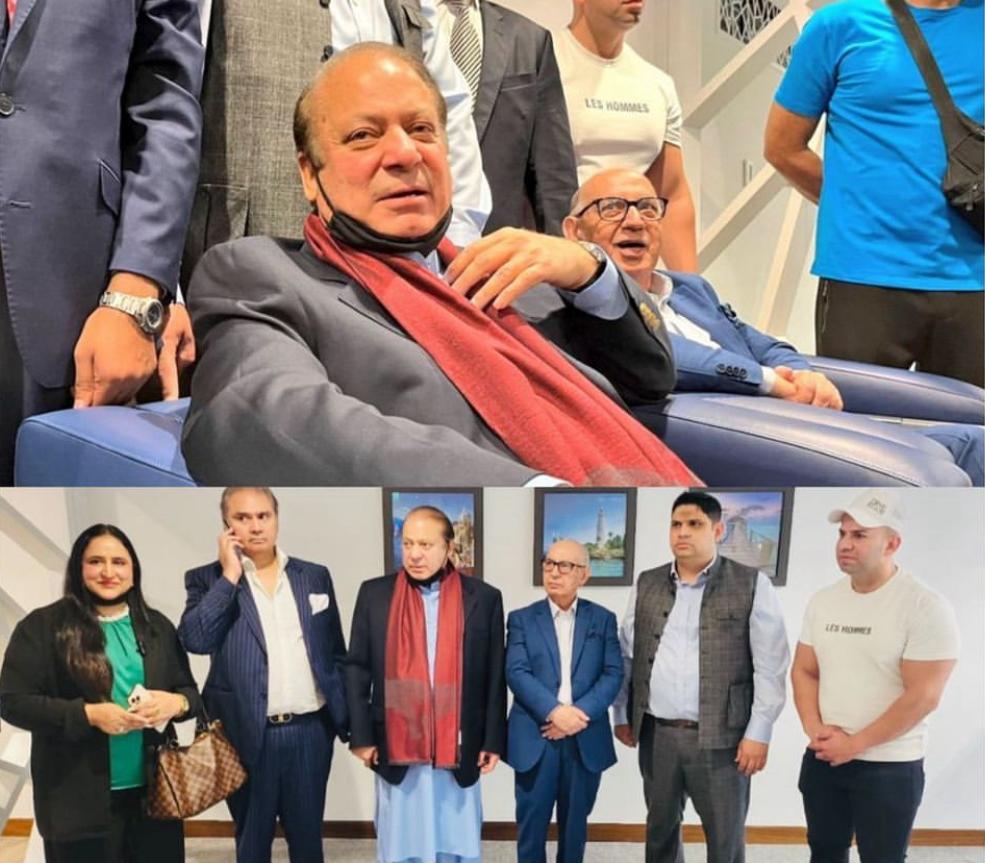Former Prime Minister Nawaz Sharif made a grand return to Pakistan after four years of self-imposed exile. During his emotionally charged address to a massive crowd at Lahore’s historic Minar-i-Pakistan, the PML-N supremo expressed a desire for reconciliation and a fresh start for the nation. He emphasized the need to heal old wounds and embark on a new journey towards progress.
Nawaz Sharif’s arrival in Islamabad marked a crucial step as it was necessary for him to fulfill legal and biometric requirements, as granted by the Islamabad High Court on October 19. His chartered plane, carrying over 150 party members and media representatives, touched down in the capital city, paving the way for his subsequent journey to Lahore.
Welcomed by his younger brother, Shehbaz Sharif, and other party leaders, Nawaz flew to Lahore Fort via a helicopter. After offering Maghrib prayers at the historic fort, he made his way to the Minari-Pakistan, where an emotional reunion with his daughter, Maryam, and other party leaders took place.
Addressing the crowd, Nawaz Sharif reaffirmed his unwavering commitment to his supporters, recounting the challenges he and his party had faced, including what he referred to as “fake cases” against them. He questioned the forces behind his separation from the nation, citing his contributions to making Pakistan a nuclear power and ending load shedding, among other accomplishments.
Expressing gratitude for the overwhelming love shown by the crowd, Nawaz acknowledged the deep pain he had endured, including the loss of family members due to their involvement in politics. His voice quivered as he recounted his personal sacrifices for Pakistan, including his inability to bid farewell to his loved ones.
ن سے ش نکالنے والوں کیلئے#NawazSharif pic.twitter.com/sOvr1UQjkk
— Raza Butt (@SocialDigitally) October 21, 2023
Nawaz Sharif also shed light on an offer he had received from former U.S. President Bill Clinton in 1999, where he was offered a substantial sum of money, but he chose not to accept it, citing his loyalty to Pakistan’s interests. He questioned whether he and his party faced consequences for their dedication to the nation’s well-being.
The former prime minister went on to compare the economic conditions during his tenure with the present, highlighting rising prices of essential commodities like bread and petrol. He questioned whether these issues were the reasons behind his ousting, seeking the crowd’s opinion.
He further recalled his vision for Pakistan as an economic powerhouse in the 1990s, promising full employment and the eradication of poverty. He contended that Pakistan’s current economic woes had deep-rooted causes predating the leadership of his brother, Shehbaz Sharif.
Nawaz Sharif stressed the importance of unity and cooperation among state institutions and political entities to strengthen the Constitution and overcome recurring challenges. He expressed a commitment to set Pakistan on a path to growth, emphasizing the need to improve foreign policy and find an honorable solution to the Kashmir issue.
Nawaz Sharif extended a message of hope to the youth, urging them to strive for a brighter future and pledging to work toward easing the burdens faced by the people.
The return of Nawaz Sharif to Pakistan marks a significant moment in the nation’s political landscape, and his message of reconciliation and progress resonates with a diverse audience. As the country anticipates future developments, Nawaz Sharif’s homecoming serves as a turning point in Pakistan’s political dynamics.


